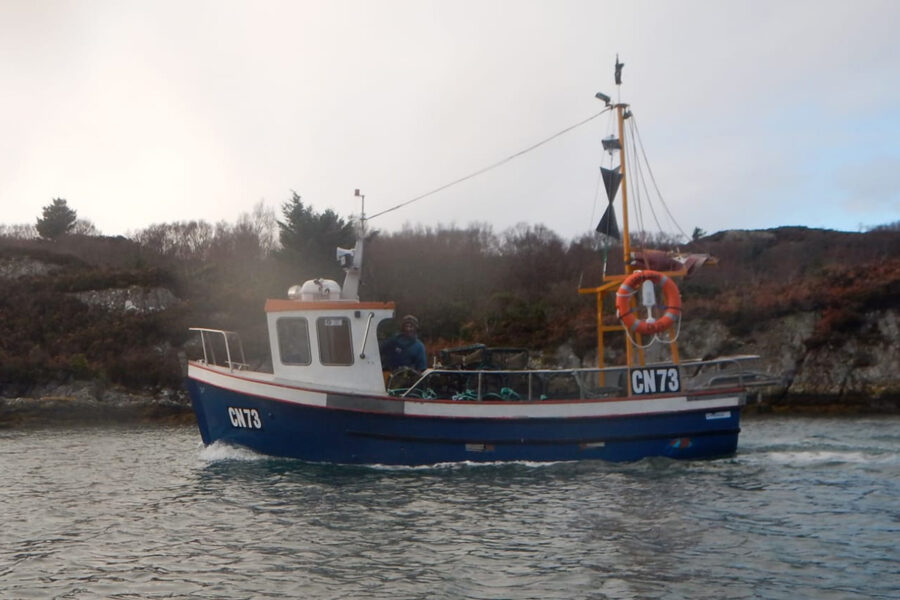Open invitation for fishermen to Clyde workshops that will explore barriers to industry-driven innovation
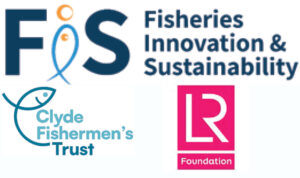
The Clyde Fishermen’s Trust (CFT) and Fisheries Innovation and Sustainability (FIS) have issued an invitation to anyone in the industry interested in learning more about opportunities to reduce fuel consumption as the fishing industry reduces its carbon footprint – or simply in contributing to the debate about how the industry can move forward in a world with net-zero targets looming.
Jonathan Walker, the project manager for CFT, told FN: “We are working with FIS to conduct a series of fisher-led workshops aimed at identifying the training and skills gaps that are preventing the transition to zero-emission vessels in the Clyde.”
The workshops, which are being supported by the Lloyd’s Register Foundation, will take place in Campbeltown and Glasgow, and will provide an opportunity for coastal communities to gain a better understanding of local needs and capacities for participation in a decarbonised modern seafood industry.
“We would like to extend an invitation to individuals who can contribute to these discussions and provide input for the creation of a report that will serve as the foundation for future initiatives,” said Jonathan Walker.
Kara Byrdson, executive director at FIS, added: “We need to cut through ‘net zero’ soundbites to understand what decarbonisation actually means for skippers and crew. How do we meet vessel emission targets in ways that are safe and practical for our fleets?
“We’re grateful to the Lloyd’s Register Foundation for helping CFT and FIS bring together fishers, vessel designers, engineers and trainers to discuss skills needs on the Clyde. But training is just one piece of the jigsaw when it comes to alternative fuels.
“High cost and low availability, space and storage, port infrastructure, permissions to convert vessels – these are all barriers to net-zero technologies that are beyond our control, but no prize for guessing who’d get the blame! The UK seafood industry needs cross-sector finance, planning and support to stay safe and stay competitive.”
The Glasgow workshop takes place on Friday, 17 March from 10am to 4pm at the Strathclyde Innovation Centre. The second workshop at Campbeltown Town Hall follows on Saturday, 18 March, starting at 10am.
Speakers include Dr Magnus Johnson of Hull University, author of an NFFO- supported report on small vessel electrification that was published last year (Fishing News, 12 May, ‘Switch to electric could generate large savings’), and Duncan Boag of Macduff Ship Design. Fraserburgh skipper and naval architect James Duthie Jnr will speak about the knowledge he gained on a recent study tour of Norway looking at alternative fuels such as ammonia and hydrogen.
Jonathan Walker is encouraging anyone in the industry interested in the subject to come along. “The format of the event will involve listening to our selection of speakers in the morning before breaking for lunch and then taking part in more workshop-style sessions where we explore the different considerations and limitations that are preventing the transition to net-zero vessels on the Clyde.
“We are especially keen to get as many fishers as possible down to both workshops! People can sign up here.”
Going solar in the Highlands
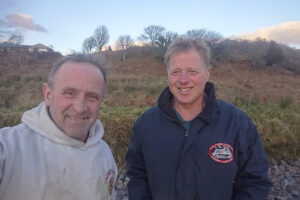
“If I can do this, it’s far from difficult. This technology is not something off in the future, it is right here and now.” Hans Unkles (left) and Dougie Chirnside, who has an electric-power scallop dive boat.
Two West Highland fishermen, scallop diver Dougie Chirnside and boatbuilder/creel fisherman Hans Unkles, will be speaking at the workshops about their experiences. Both have converted their vessels to all-electric, with the aim of powering the vessels almost entirely from solar panels – which they say is possible even in the wet West Highland climate!
Hans Unkles, who has converted a conventional diesel-powered Cygnus 21 to all-electric power, recently completed his first sea trials with the boat, and told FN that he was ‘delighted’ with the performance.
“She can cruise at six knots without draining the batteries too quickly, and the tests I did suggest that with the full battery complement I have for the boat, a range of eight hours’ steaming will easily cover a full working day.
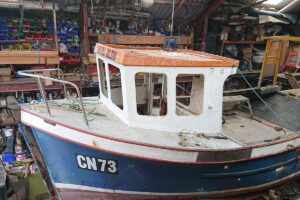
The vessel in Hans’ shed at the start of the conversion.
“The traditional crofters’ work patterns that we see around here, with a mixture of different jobs and not fishing every day of the week, means that the aim to run entirely on solar power may be practical and possible.
“I’ll be continuing with my own boatbuilding and repairing work as well as fishing – hopefully without any need to utilise the portable generator I’ll have on the shore to recharge the batteries in an emergency.”
With the first sea trials complete, Hans’ vessel is now back in the shed for the finishing touches, including fitting of the electric creel hauler, before it starts fishing in earnest in late April.
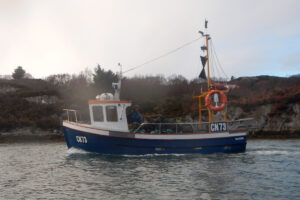
Successful sea trials of Hans’ new boat underway.
The electrification has seen the vessel completely refitted – a process that has been documented by local filmmaker Joe Osborn, who released a trailer of the film on his Facebook page last week, available here.
“Technically the conversion was no bother – a bit of unfamiliarity, but no real challenges,” Hans said. “The film aims to show people that zero-carbon power for boats of this type isn’t something far off in the future, it is right here and now! Delays are likely to be due to bureaucracy and regulation keeping up with the technology, not the technology itself.
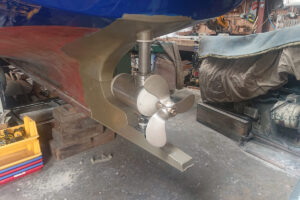
The power to drive the electric motor is expected to be entirely from West Highland sunshine!
“I’ve managed all this conversion in my own workshop. It needed me to raise the deck slightly, with the batteries providing the stability and ballast.
“Before starting work, I discussed it with Gary Mitchell, the original designer of the Cygnus range, as well as with MCA surveyors, and the whole refit has been done with smoothing a road through the MCA coding very firmly in mind.
“I am looking forward to discussing the process at the workshops, and exchanging ideas and experiences with others there. It’s great that industry is leading these discussions. A process of converting to new technologies is going to come into the industry faster than many people may think.”
This story was taken from the latest issue of Fishing News. For more up-to-date and in-depth reports on the UK and Irish commercial fishing sector, subscribe to Fishing News here or buy the latest single issue for just £3.30 here.
Sign up to Fishing News’ FREE e-newsletter here.

